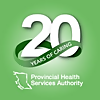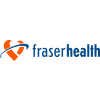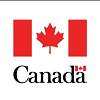Youth and Family Counsellor, Mental Health Program
BC Children’s Hospital
Vancouver, BC
Do you have the ability to support patients ages 5-17 with self-regulation and daily living activities? Are you able to coach parents / caregivers with positive behavioural support skills?
Do you have experience facilitating child or adolescent groups? Acting as a youth care worker, BC Children's Hospital is seeking a Youth & Family Counsellor to support patients on the Child Psychiatry Unit with program and group facilitation.
The Youth and Family Counsellor (YFC) reports operationally to the Clinical Nurse Coordinator at BC Children's Hospital Mental Health and is responsible for maintaining a physically and emotionally safe therapeutic milieu, developing and facilitating groups, and providing activities and care appropriate to the child’s / youth’s stage of development.
In a hospital based psychiatric assessment and treatment program, the Youth and Family Counsellor works collaboratively as part of an interprofessional team within an evidence based Trauma Informed model of care, to support all aspects of therapeutic care of patients with behavioural, emotional, and psychiatric problems and their families / caregivers.
The Youth and Family Counsellor provides supportive counselling, and psychosocial assessment, including working with families / caregivers in accordance with established standards, policies and procedures.
Drives patients to designated locations by operating the Centre’s vehicle.
Please indicate on your cover letter why you are interested in joining our team at BC Children's Mental Health! Check out our video
What you’ll do
Assess patients’ emotional and behavioural presentation, through the application of developmental theory, skills in Child and Youth Care, and trauma informed care.
Communicates this assessment to the primary nurse and / or interprofessional team using appropriate methods including written documentation as per agency standards.
- Support children and youth in lifespan development activities in the context of their psychiatric disorder, through supportive counselling, strategic interventions, psychosocial development, and guidance in activities of daily living such as bathing, dressing and therapeutic meal support.
- Participate and contribute to patient care plan development, treatment strategies and intervention development with the assigned primary nurse and the interprofessional team by methods such as reviewing patient progress, discussing potential changes with team, and adjusting care strategies accordingly.
Implements treatment team strategies and interventions as approved by the primary nurse and interprofessional team.
Collect and document pertinent patient information related to patient admission, progress notes, weekend pass outcomes and transition planning as required.
Participate in patient and family / caregivers meetings, rounds and case conferences as required.
- Establish and maintain therapeutic milieu by using engagement interventions such as Collaborative Problem Solving, trauma informed strategies, attachment and self-regulation strategies, and through the application of child and youth care theory and practice.
- Maintain a physically and emotionally safe environment for all patients by assessing and identifying the need for intervention in crisis situations through a trauma informed lens.
Implements actions and documents according to established crisis management policies and procedures of the organization.
Enhance the child and family / caregivers capacity for social skill development and community integration by methods such as utilizing understanding of group process, and organizing, leading and / or participating in assigned groups, such as community meetings and social skills development groups.
Assists in community integration and social skills development by acting as a role model to organize and actively participate in activities (such as recreational outings to the gym, park, and swimming facilities), driving the Centre’s vehicle as required, and others activities as assigned.
What you bring
Qualifications
- Bachelor in Child and Youth Care, or a Bachelor of Arts with a Major in Psychology or Clinical Counselling, that includes course content relevant to Child and Youth Mental Health such as Infant, Child, and Adolescent Development, Fundamentals of Clinical Psychology, Abnormal Psychology, and Group and Family Processes.
- Two (2) years’ recent related experience working in a child and youth setting.
- Valid Class 4 driver’s license.
- Current CPR certification.
You will also have
- Broad knowledge of the normal growth and development of children and youth
- Basic knowledge of mental health disorders in children and youth.
- Broad knowledge of Trauma Informed Care including Collaborative Problem Solving.
- Broad Knowledge of Attachment and Self Regulation Theory and Strategies.
- Broad knowledge of and demonstrated ability in recognizing and managing transference and counter-transference.
- Broad knowledge of and demonstrated ability in engaging and supporting individuals, milieu, and group processes.
- Demonstrated initiative in providing and participating in age appropriate activities.
- Commitment to upholding the shared responsibility of creating lasting and meaningful reconciliation in Canada as per TRC (2015) and BC's Declaration on the Rights of Indigenous Peoples Act (2019).
- Knowledge of social, economic, political and historical realities impacting indigenous communities and familiarity with Indigenous Cultural Safety and anti-racism and accompanying reports (BC DRIPA, TRC, etc.).
What we bring
Every PHSA employee enables the best possible patient care for our patients and their families. Whether you are providing direct care, conducting research, or making it possible for others to do their work, you impact the lives of British Columbians today and in the future.
That’s why we’re focused on your care too offering health, wellness, development programs to support you at work and at home.
- Join one of BC’s largest employers with province-wide programs, services and operations offering vast opportunities for growth, development, and recognition programs that honour the commitment and contribution of all employees.
- Access to professional development opportunities through our in-house training programs, including +2,000 courses, such as our San’yas Indigenous Cultural Safety Training course, or Core Linx for Leadership roles.
- PHSA is a remote work friendly employer, welcoming flexible work options to support our people (eligibility may vary, depending on position).
Location : 4500 Oak Street, Vancouver BC, V6H 2N9
Applications will be accepted until position is filled.
Hours of Work : Rotating
Requisition # : CAS-YFC
As per the current Public Health Order, full vaccination against COVID-19 is a condition of employment with PHSA as of October 26, 2021.
What we do
BCCH) provides care for the most seriously ill or injured children and youth from across British Columbia.
BCCH is part of the Provincial Health Services Authority (PHSA).
The Provincial Health Services Authority () plans, manages and evaluates specialized health services with the BC health authorities to provide equitable and cost-effective health care for people throughout the province.
Our values reflect our commitment to excellence and include : Respect people Be compassionate Dare to innovate Cultivate partnerships Serve with purpose.
Learn more about PHSA and our programs :
PHSA and BCCH are committed to employment equity, encouraging all qualified individuals to apply. We recognize that our ability to provide the best care for our diverse patient populations relies on a rich diversity of skills, knowledge, background and experience, and value a safe, inclusive and welcoming environment.
Reconciliation is an ongoing process and a shared responsibility for all of us. The BC Governments’ unanimous passage of the Declaration on the Rights of Indigenous Peoples Act was a significant step forward in this journey one that all health authorities are expected to support as we work in cooperation with Indigenous Peoples to establish a clear and sustainable path to lasting reconciliation.
True reconciliation will take time and ongoing commitment to work with Indigenous Peoples as they move toward self-determination.
Guiding these efforts Crown agencies must remain focused on creating opportunities that implement the Truth and Reconciliation Commission Mandate.




